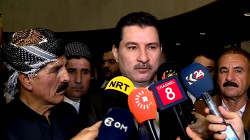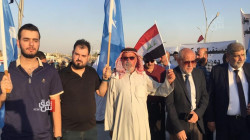Kirkuk’s 2025 elections: Unresolved identities, fragile alliances, and a race for control

Shafaq News/ Kirkuk edges toward a critical electoral test in 2025, where unresolved questions of identity, governance, and representation are once again colliding in one of Iraq’s most contested provinces.
The province, often described as a mirror of Iraq’s complexity, remains suspended in uncertainty. Home to Kurds, Arabs, Turkmen, and other minorities, the city has yet to see any lasting resolution to its disputed status under Article 140 of the Iraqi Constitution.
The roadmap laid out in 2005—normalization, census, and referendum—has remained incomplete for nearly two decades, leaving it in a legal and administrative vacuum that fuels ethnic tensions and institutional fragility between Baghdad and Erbil.
The Kurdish Dilemma: Between Symbolism and Strategy
For Kurds, Kirkuk carries symbolic weight, often referred to in Kurdish discourse as the “Jerusalem of Kurdistan.” Following 2003, Kurdish political and military forces gained significant influence in the province until the dramatic withdrawal of Peshmerga forces in 2017, after the independence referendum. That shift redefined the local balance of power and continues to shape Kurdish electoral strategies.
In 2021, the Patriotic Union of Kurdistan (PUK) secured five parliamentary seats, while the Kurdistan Democratic Party (KDP) boycotted the elections in protest. The same pattern played out in the 2023 local elections, where the PUK, backed by Arab and Christian parties, again secured a majority and formed the local government, despite KDP opposition.
Now, in a notable shift, the KDP and PUK have reached a preliminary agreement to contest the upcoming parliamentary elections with a unified Kurdish list in Kirkuk. The agreement, forged during a meeting hosted by the Kurdistan Islamic Union, included other Islamic parties and aims to enhance Kurdish representation through a shared platform.
However, some experts are skeptical. “The Kurdish voice is no longer united in Kirkuk,” researcher Abdul Hamid Khalid says to Shafaq News. “Deep divisions between the two main parties and the exclusion of Islamic Kurdish factions make each election less a demonstration of unity and more a scene of internal conflict.”
He adds that Kurdish parties often run separately, negotiating alliances only after the results—an approach that weakens their influence in disputed areas.
The delayed formation of the Kurdistan Regional Government (KRG) is cited by some as both a symptom and a cause of these divisions, reflecting deeper fractures that extend into the Kirkuk arena.
Currently, PUK official Rebwar Talabani serves as Kirkuk governor, a position he assumed nearly ten months ago through a political arrangement. While the administration has remained stable, it lacks consensus. The KDP and some Turkmen parties openly oppose the appointment, seeing it as unrepresentative.
“The governor's appointment may have ended one dispute, but it simply moved the crisis from the negotiating table to behind closed doors,” political analyst Mohammed Younis told Shafaq News. “Its legitimacy will again be tested in the upcoming vote.”
Arab Scene: Fragmentation Weakens Leverage
In the Arab camp, unity remains elusive. Political lists are fragmented, and figures are competing for influence in areas like Hawija, Dibis, and central Kirkuk. In 2021, Arab parties secured four seats, divided among various alliances.
Veteran Arab politician Wasfi al-Asi has called for a unified Arab list, even offering to step aside from any leadership position to prioritize collective representation. “I place no conditions,” he told Shafaq News. “If we unite, we could become the strongest bloc in Kirkuk.”
Despite this, Arab voters remain scattered across coalitions such as Taqaddum (led by Mohammed al-Halbousi), Azm (led by Khamis al-Khanjar), as well as local tribal or independent candidates.
Political figure Talal al-Azzawi believes Arabs could win five to six seats if they run together, particularly in strongholds like Hawija and Dibis. But without unity, they “risk repeating the fragmentation of past cycles.”
Turkmen Identity: A Divided Front
The Turkmen community also faces internal rifts, with secular and nationalist factions on one side and pro-Shiite parties on the other. In 2021, they secured only two of Kirkuk’s twelve parliamentary seats.
While a Unified Turkmen Front was declared under the leadership of Mohammed Saman Agha, it has failed to bridge divides with other Turkmen components—particularly those affiliated with the Badr Organization. Researcher Abbas al-Bayati warns that such fragmentation could further reduce Turkmen representation.
Turkmen leaders have also expressed dissatisfaction over their exclusion from recent power-sharing arrangements, particularly during the formation of the local government. They warn that any future settlements that bypass their role will face political pushback and potential street protests.
Delayed Alliances, High-Stakes Election
Without cross-ethnic coalitions, Kirkuk’s 2025 elections appear set to reproduce the gridlock of previous cycles. Local sources indicate that no major alliance agreements are likely before the results are announced, potentially prolonging the province’s political deadlock.
“The lack of pre-election consensus risks creating a post-election crisis of representation,” warns analyst Mohammed Younis. “This could delay service projects and jeopardize security stability in the province.”





